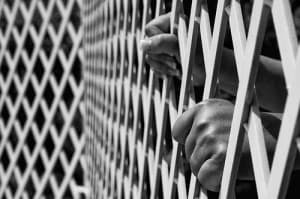Spring is still a few weeks away, but a spring-cleaning of sorts is percolating through the criminal justice system. Astute observers may recall that last summer, Attorney General Eric Holder began the process of review and reform for criminal sentences at the federal level. While it is still moving slowly, the exciting thing is, as The Economist reports, reform is actually underway. One area that seems to be generating some good energy on the reform track is the effort to care better for prisoners with mental health conditions.
There are serious, deep, and difficult questions about how the law-enforcement system treats those with mental illness, particularly when they are incarcerated. Nicholas Kristof, writing in the New York Times recently that is very much worth reading in full, re-opened the question of using jail and prison as a substitute for mental health care institutions for the poor:
THE largest mental health center in America is a huge compound here in Chicago, with thousands of people suffering from manias, psychoses and other disorders, all surrounded by high fences and barbed wire.
Just one thing: It’s a jail. The only way to get treatment is to be arrested.
Psychiatric disorders are the only kind of sickness that we as a society regularly respond to not with sympathy but with handcuffs and incarceration. And as more humane and cost-effective ways of treating mental illness have been cut back, we increasingly resort to the law-enforcement toolbox: jails and prisons.More than half of prisoners in the United States have a mental health problem, according to a 2006 Justice Department study. Among female inmates, almost three-quarters have a mental disorder.
Things are changing for the better, though. In Cook County, the Sheriff himself is engaging the issue head-on. Other places, too, are seeking to make life better for mentally ill prisoners:
-
In Maine, law enforcement, health care professionals, and mental health advocates collaborated to set up a specialized unit of the state prison to deal with inmates with mental health illnesses;
-
The US penitentiary just outside Atlanta has established a “step-down” facility to provide safe and effective care to mentally ill prisoners;
-
New Jersey has launched a pilot program to provide counseling and therapeutic services rather than a jail sentence for some low-level offenders with mental health issues.
-
Pennsylvania has been taking steps over the last year, in response to a court order, to provide improved care and specialized facilities for mentally ill inmates. The ACLU, who originally sued the state over the issue, has called it a “very impressive” treatment model, rather than one based on “punitive segregation.”
Such a model should be the goal of any incarceration, not just for the mentally ill. Whatever the reasons leading to incarceration, a prisoner does not cease to be a human. As such, each deserves humane treatment, to be cared for, especially in illness, and to have their fundamental dignity preserved and protected. These can only be good steps on the road to a humane — and human — prison system.
******
Photo, “Prison” by flickr user Tiago Pinheiro, https://flic.kr/p/9z5Fp5



